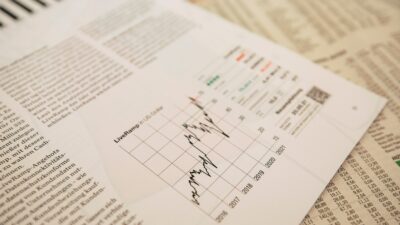Wei Li and Hans Hendrischke

Not just retail and restaurants: Australia’s new high tech Asian entrepreneurs
The traditional image of Asian entrepreneurs serving their diaspora communities in retail, catering, and small-scale import and export business dates back to generations of immigrants who arrived in Australia to escape poverty and a lack of opportunities in their countries of origin. These early immigrants congregated in closely-knit communities held together by the languages and traditions of the home country.
Today Australia’s ‘Asian’ entrepreneurs are often highly educated, operating in technical industries using their dual Australian/Asian identies as a channel to pursue intergrated business opportunities between Australia and the land of their forebearers.
“We leverage our strength here and our strength in Asia, to meet the demand in the Australian market…if you are good in sourcing products, you can do good business…”
Elizabeth Ryu, Happytel
Who are this new generation of Asian Australian entrepreneurs: what makes them successful, how do they view themselves compared with other businesses and what are the challenges they face coming out of the COVID-19 pandemic?
We surveyed 72 Asian Australian businesses and interviewed 22 Chinese, Indian, Japanese, South Korean, and Vietnamese Australian entrepreneurs. Understanding the new generation of Asian-Australian entrepreneurs requires a transnational perspective with a focus on the multiple ties and interactions linking people or institutions across the borders of nation-states and their impact on economic development in origin and destination countries.
“Not many people can see what is happening in Australia without being here… Australia remains an isolated geographical location – so it would make sense for companies to use this as a test market, so their test results do not spill over to the another market next door…”
Yoshinori Sakuno, Doq®
The new generation of Asian Australian entrepreneurs are a valuable addition to our SME sector. They are highly trained with 50 percent having tertiary qualifications. Many became entrepreneurs after spending time in mainstream corporate careers. All surveyed entrepreneurs have at least one local or overseas tertiary qualification and 41 percent have a postgraduate degree or graduate diploma. Nearly two thirds (63.6 percent) received their highest degree in Australia.
These are no longer the traditional Asian family operations, but mainstream businesses run by people who are fully integrated into Australian society.
Our Asian-Australian entrepreneurs operate in mainstream markets and pursue business in new industries and across local, national, and regional borders. The main activity of 30 percent of surveyed businesses is in professional, scientific and technical services and wholesale trade. This is followed by other services (11 percent) and accommodation and food services (10 percent).
In the services sector, we see examples of traditional cross-border trading networks evolving into regional supply chains and advanced forms of social E-commerce and digital marketing bringing Asian consumer trends into Australia.
Through their access to new business ecosystems in Asia, an advantage courtesy of their strong family and social networks, they tend to be more resilient in the face of disruption, such as COVID-19. They interact with family networks at least every month on average. More than 70 percent interact with members of their family networks for business purposes on a weekly basis.
Their cross-border consulting and investment is bringing Asian companies to Australia who are keen to develop Australia as a testing ground and springboard to enter larger Western markets. Our case studies illustrate their contribution to the local economy through access to and two-way integration into regional supply chains that are expandable in scale. Furthermore these links lead to two-way technology spill-overs and technology transfers bringing advanced technologies and standards from Australia to Asian countries and sophisticated manufacturing and consumer know-how to Australia from rapidly developing Asian markets. These business ecosystems also provide incubation of a young generation of Australian up-starts by students from different Asian countries who build their own regional networks.
The new generation of Asian-Australian entrepreneurs have been increasingly shaped by the openness of Asia Pacific regional cross-border networks and their integration into Australian society and mainstream business. More than their parents, this new generation of entrepreneurs are intermediaries between Australia and regional economies. They complement the skill set of mainstream SMEs in Australia’s regional economic integration. Our findings show that their contribution to the Australian economy is highly differentiated and justifies nuanced support to fully utilise their potential and resilience.
This article draws on the report, Asian Business in Australia, authored by Dr Wei Li, Professor Hans Hendsrichke and Dr Laurent Pauwels (The University of Sydney) and Steven Chu (The Commonwealth Bank of Australia).
Image: Robynne Hu
Wei Li has worked as a researcher on water conservation and renewable energy for the World Bank, the Chinese Ministry of Environmental Protection and Renmin University of China.
Hans Hendrischke is Professor of Chinese Business and Management at the University of Sydney Business School. He leads the School’s Australia China Business Network and chairs the Business and Economics Cluster of the University’s China Studies Centre.
Share
We believe in open and honest access to knowledge. We use a Creative Commons Attribution NoDerivatives licence for our articles and podcasts, so you can republish them for free, online or in print.







